Scientists identify nine genetic variants that could have helped a man to avoid dementia for at least two decades longer than expected.
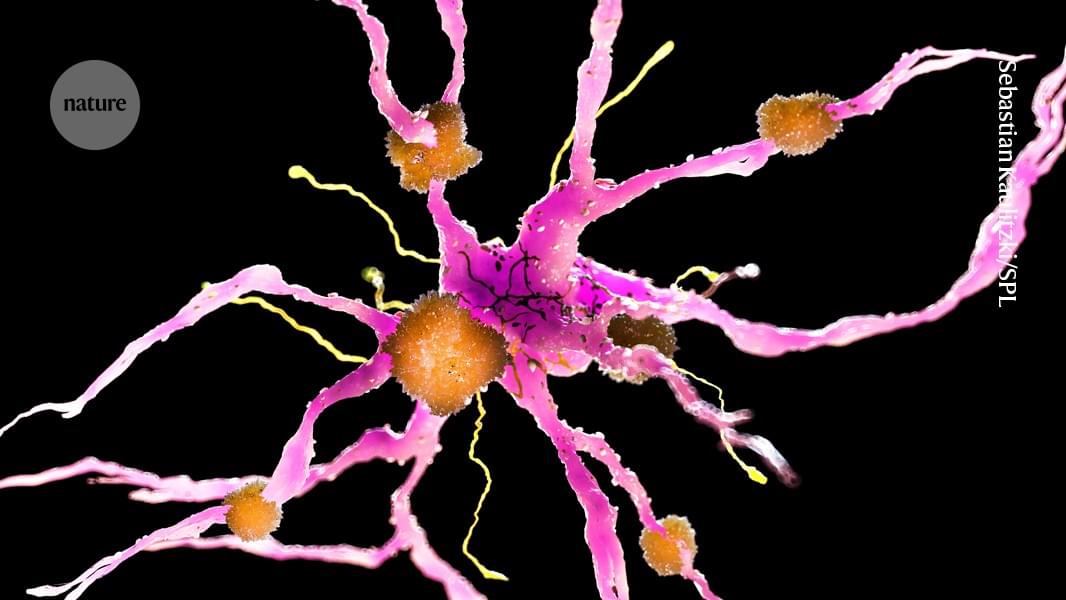



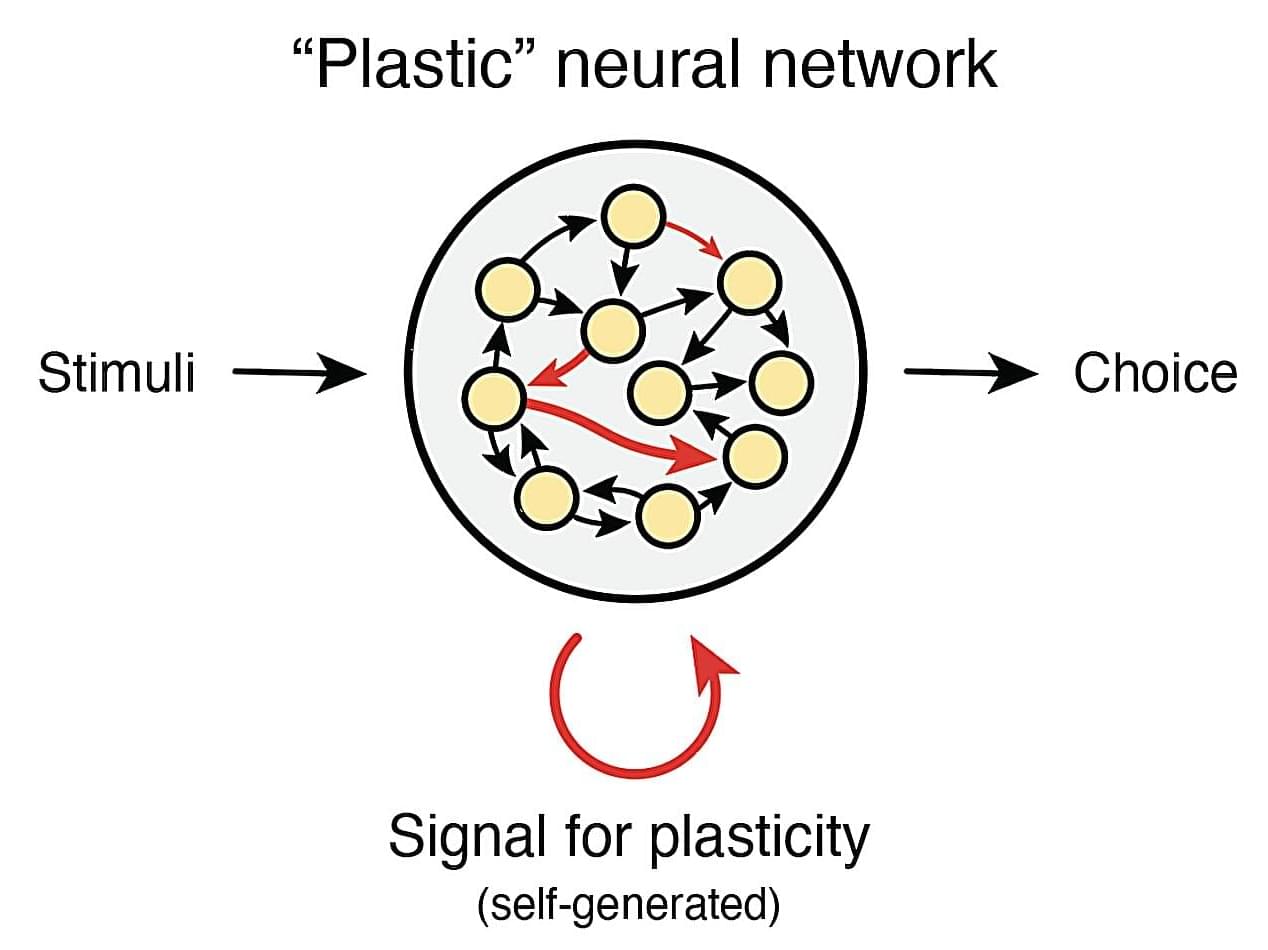
Humans and certain animals appear to have an innate capacity to learn relationships between different objects or events in the world. This ability, known as “relational learning,” is widely regarded as critical for cognition and intelligence, as learned relationships are thought to allow humans and animals to navigate new situations.
Researchers at ML Collective in San Francisco and Columbia University have conducted a study aimed at understanding the biological basis of relational learning by using a particular type of brain-inspired artificial neural network. Their work, published in Nature Neuroscience, sheds new light on the processes in the brain that could underpin relational learning in humans and other organisms.
“While I was visiting Columbia University, I met my co-author Kenneth Kay and we talked about his research,” Thomas Miconi, co-author of the paper, told Medical Xpress.
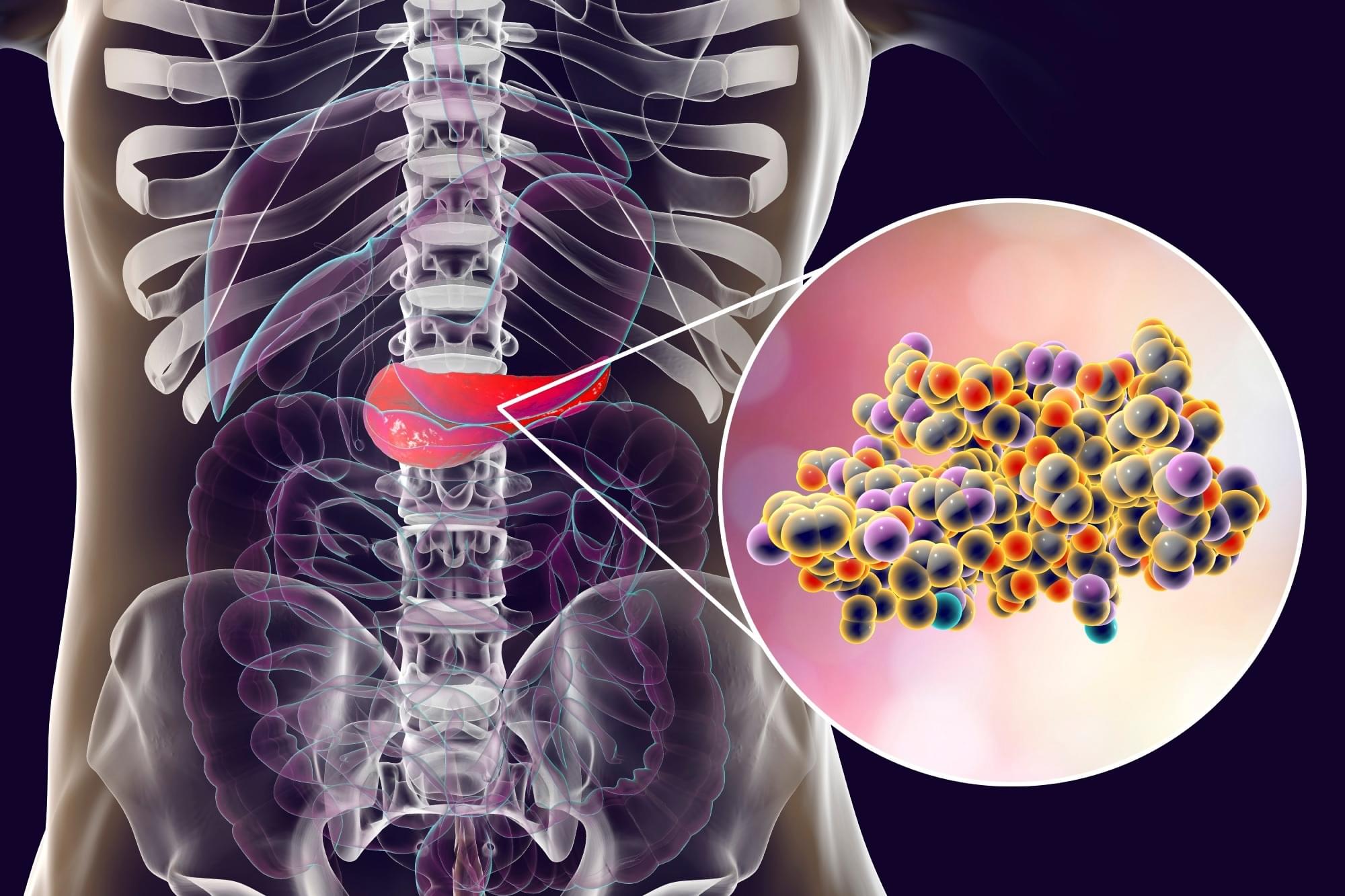
A recent study published in Science investigates the underlying mechanisms of endothelial insulin resistance involved in obesity-associated diabetes.
What causes insulin resistance?
Diabetes is a chronic disease that occurs when the body cannot adequately produce or use insulin, a hormone that facilitates the transportation of glucose from the blood into cells for energy. The activation of insulin receptors, which are highly expressed on the luminal side of endothelial cells, induces endothelial nitric oxide (NO)-synthase (eNOS) activity. Subsequently, NO-mediated vasodilation allows insulin to reach metabolic target cells including adipocytes, skeletal muscle cells, and hepatocytes.
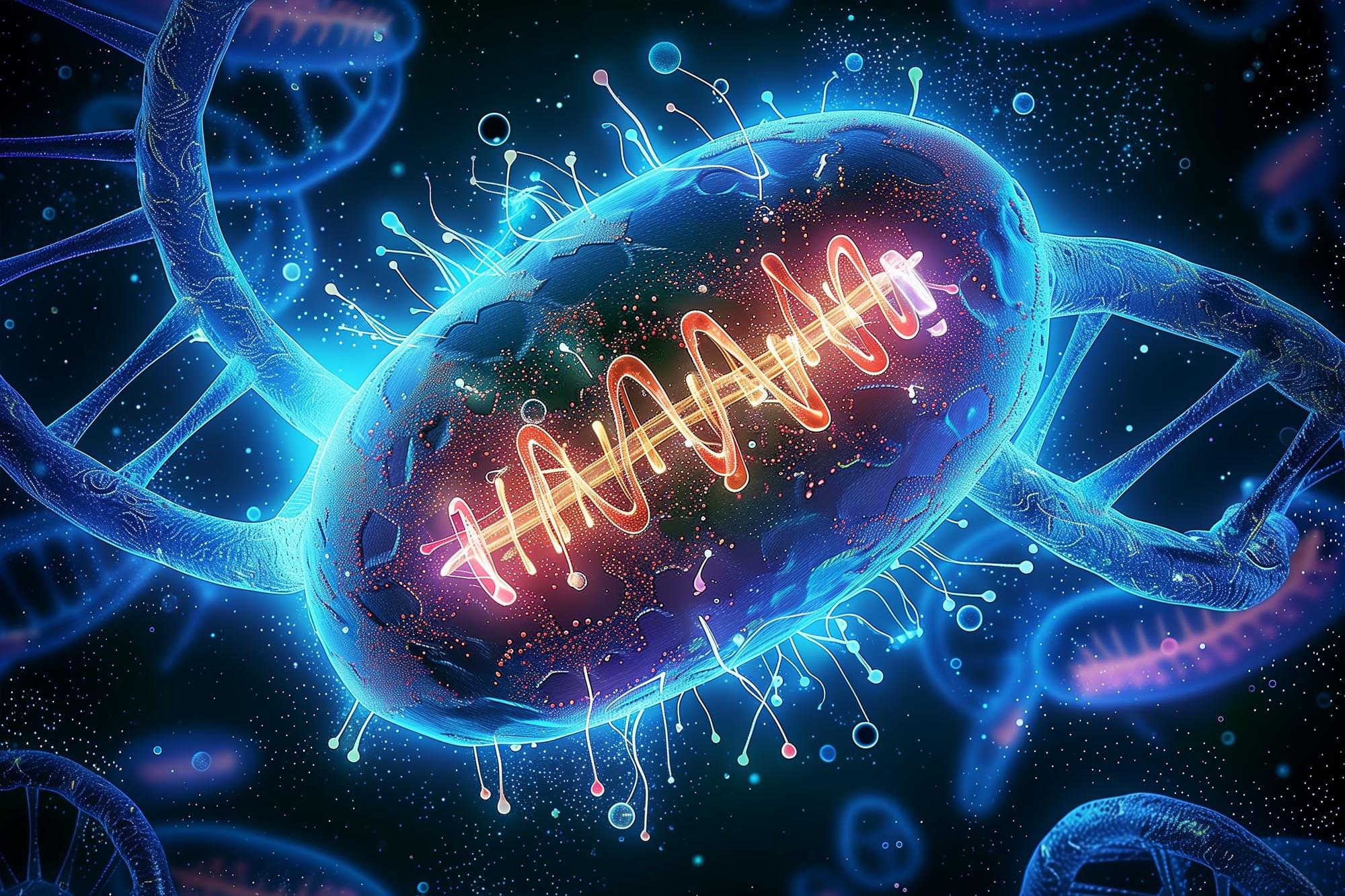
This allows them to see how bacteria activate different genes in response to their environment, offering insights into microbial behavior, antibiotic resistance, and infection strategies.
How Bacteria Organize Their Activities
How do bacteria — whether beneficial ones in our bodies or harmful disease-causing strains — coordinate their activities? A recent study has provided new insights by combining advanced genomic-scale microscopy with an innovative technique to track which genes bacteria activate in different conditions and environments. Published recently in the journal Science, this breakthrough is set to advance bacterial research significantly.
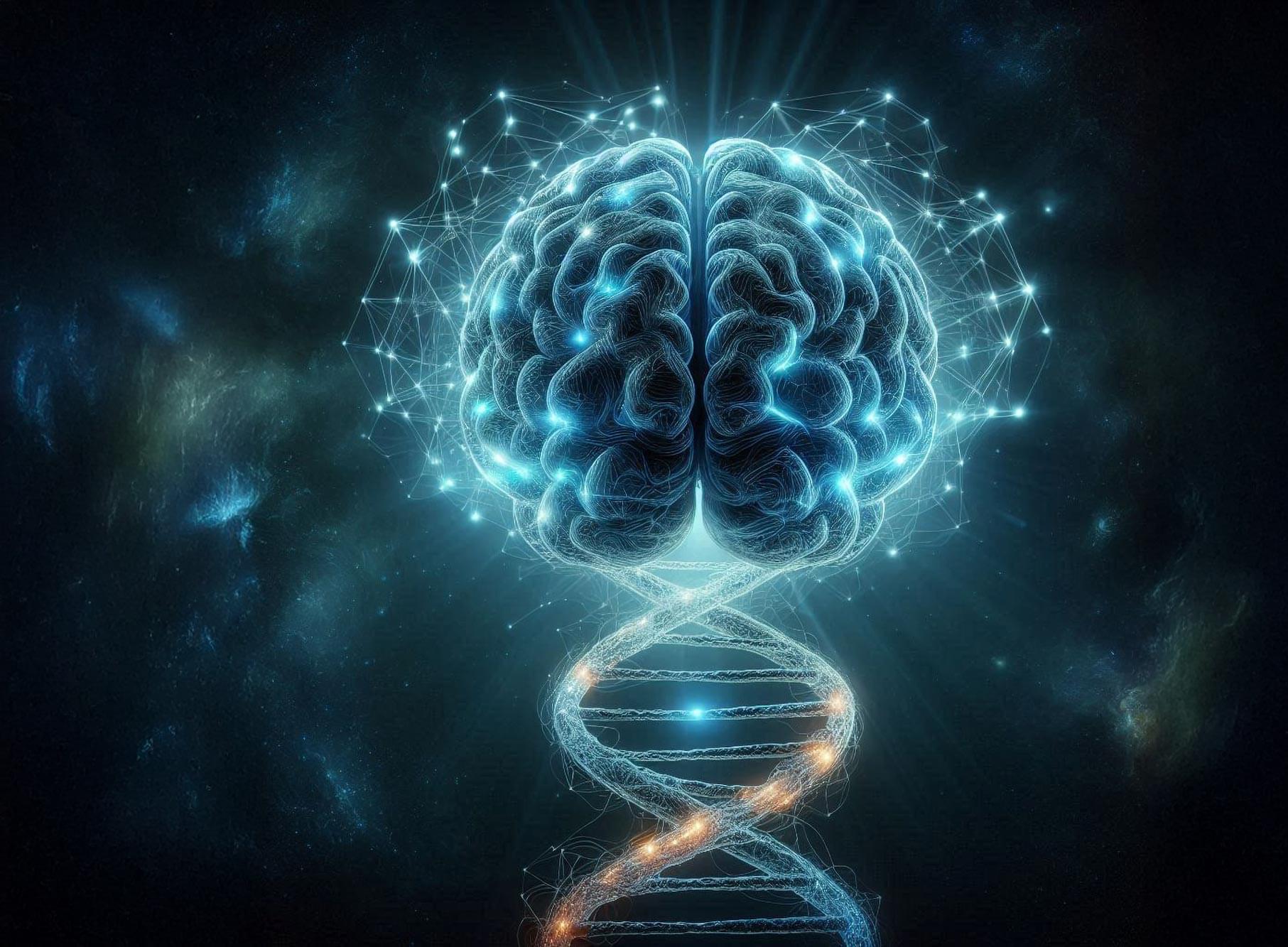
Scientists explored Human Accelerated Regions (HARs), genetic regulators that tweak existing genes rather than introducing new ones. Using cutting-edge techniques, they mapped nearly all HAR interactions, revealing their role in brain development and neurological disorders like autism and schizophrenia.
Decoding the Genetic Evolution of the Human Brain
A new Yale study offers a deeper understanding of the genetic changes that shaped human brain evolution and how this process differed from that of chimpanzees.
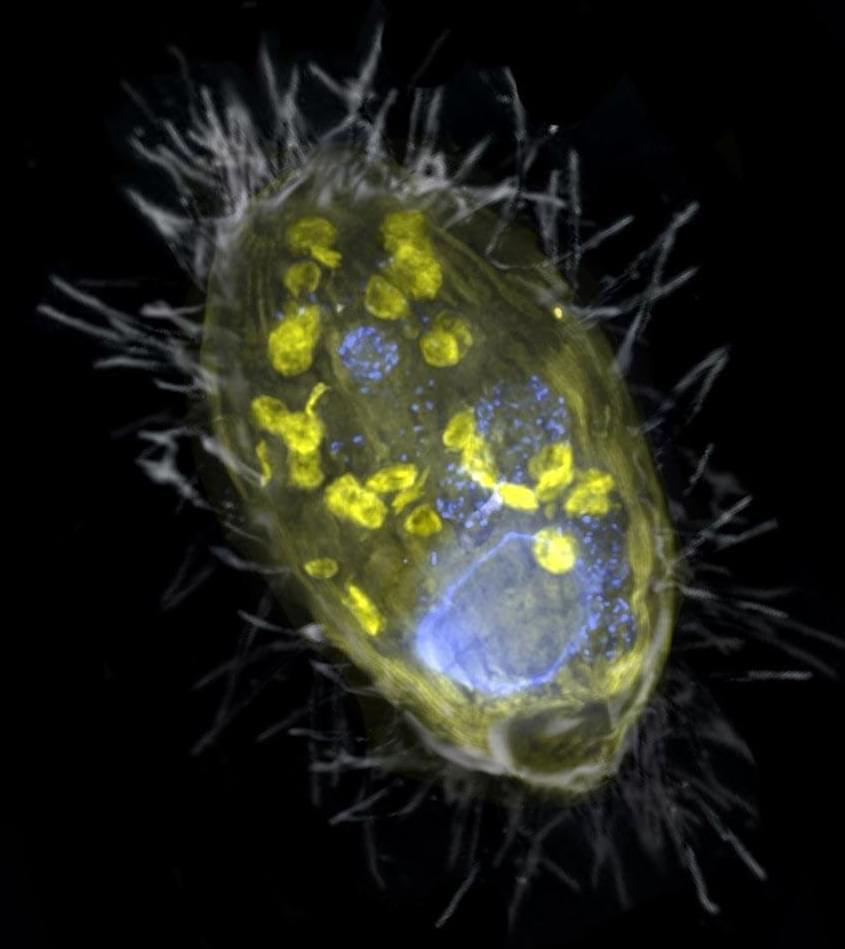
Scientists have discovered a remarkable new form of symbiosis — a bacterium that lives inside a single-celled organism (a ciliate) and provides it with energy. Unlike mitochondria, which use oxygen, this microbe powers its host by breathing nitrate.
Initially found in a freshwater lake, researchers set out to determine how widespread these microbes are. To their surprise, they uncovered them in diverse environments worldwide, from lakes and groundwater to even wastewater. This discovery challenges our understanding of microbial partnerships and reveals how these tiny organisms play a hidden yet significant role in global ecosystems.
A New Symbiotic Discovery
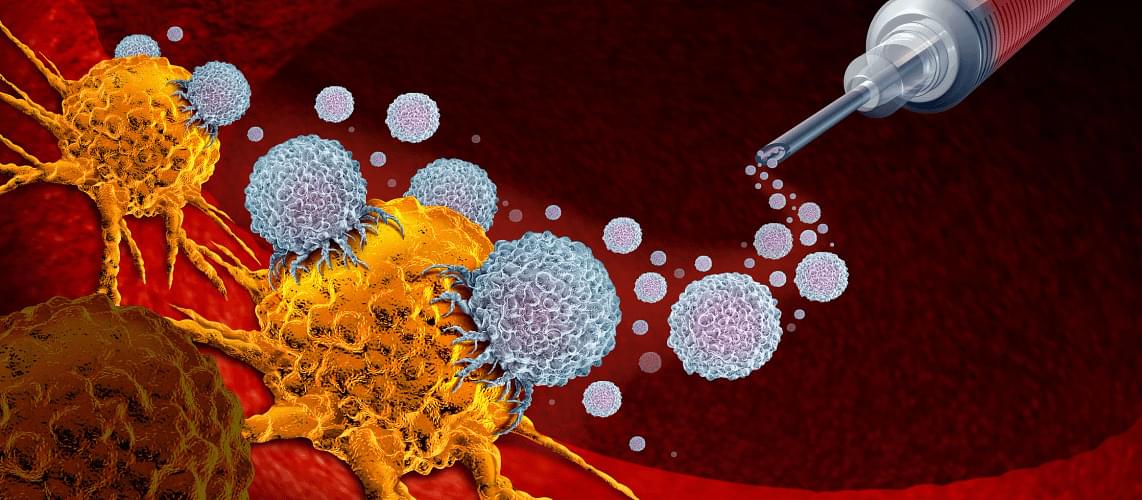
The small trial showed durable results in nine patients three years after treatment with the experimental vaccine
Findings published this week in the journal Nature showed how personalized therapeutic vaccines can change the course of kidney cancer, though longer trials will be needed to confirm this approach.
The vaccines were tailored to particular mutations in the tumors of kidney cancer patients using so-called neoantigens, which are unique proteins or peptides generated by tumor cells that differ from those found in normal tissues. Not only do the neoantigens shield against cancer recurrence, but they also prevent unintended damage to healthy cells, which is a major concern with traditional chemotherapy regimens.
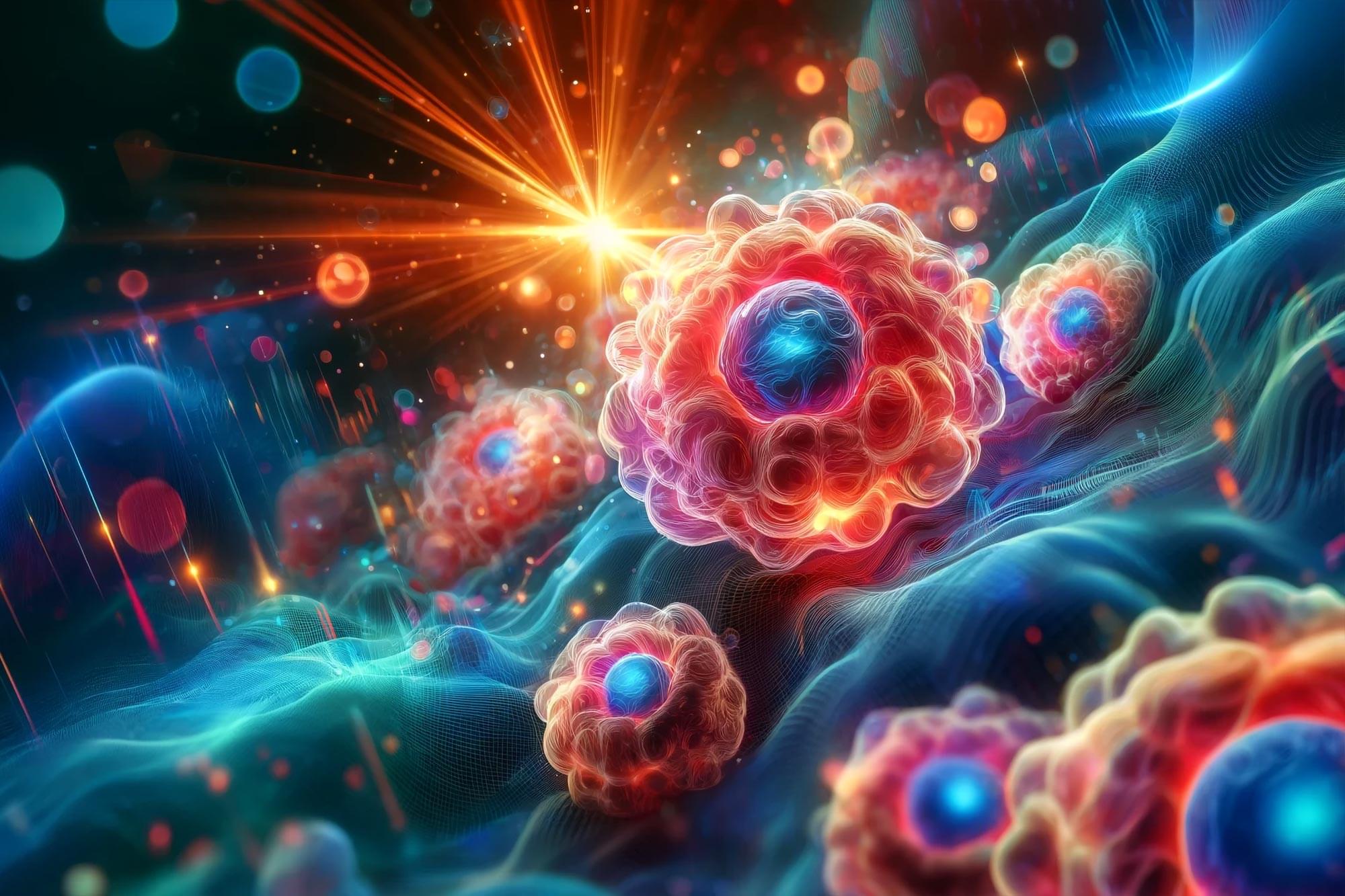
When the immune system becomes unbalanced, it can lead to serious problems, such as type 1 diabetes, other autoimmune diseases, or organ rejection after a transplant. Current treatments often involve suppressing the entire immune system, which can cause severe side effects, including a higher risk of infections and other complications. A better approach would be to regulate the immune response in a precise and targeted way. That’s exactly what researchers have now achieved by engineering specialized immune cells designed to restore balance without compromising overall immunity.
Engineering Immune Cells to Protect Rather Than Attack
The immune system defends the body against viruses, bacteria, and other threats by identifying harmful invaders and mounting a response. It also distinguishes between the body’s own cells and foreign ones, adjusting its reaction as needed. However, when the immune system becomes dysregulated, it can mistakenly attack the body’s own tissues. This happens in conditions like type 1 diabetes, where the immune system destroys insulin-producing beta cells in the pancreas. It can also reject transplanted organs, treating them as foreign threats. While immunosuppressant drugs can prevent these harmful reactions, they come with serious risks, including increased vulnerability to infections and cancer.